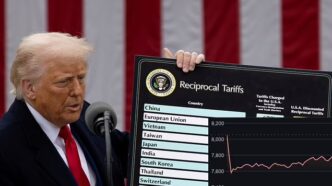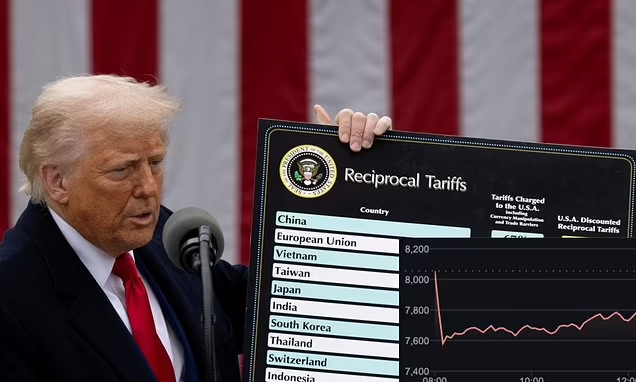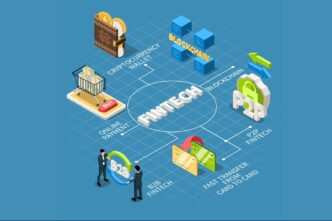At the start of 2025, despite growing concerns around tariffs, optimism was high that tech mergers and acquisitions were finally staging a comeback. The tech industry was showing signs of recovery, and momentum was building for a much-anticipated comeback in mergers and acquisitions. But just as the deals began to flow, a wave of tariff uncertainty has thrown everything off balance — and it might have already derailed the revival.
After the venture market cooled significantly in 2022, investors were eager for a return of exit activity — both through IPOs and M&A deals. As valuations slowly rebounded in late 2024, and with a few billion-dollar deals hitting headlines early this year, there was genuine hope that tech dealmaking was back.
Major acquisitions like CoreWeave’s $1.7 billion purchase of Weights & Biases, ServiceNow’s $2.9 billion bid for Moveworks, and Google’s $32 billion splash for Wiz pointed to a potential surge. Proptech company Divvy Homes was snapped up by Brookfield for $1 billion. Insurtech firm Next Insurance went to Munich Re for $2.6 billion.
But then April happened.
Everything shifted on April 2 — a day now being called “Liberation Day.” That’s when Donald Trump announced sweeping new tariffs targeting nearly every major U.S. trade partner. Tech stocks immediately took a hit. Despite a temporary 90-day pause on those tariffs a week later, the damage had already been done. Markets turned cautious, and dealmakers froze.
Tariffs Cloud Forecast for 2025
Before April, many in the industry believed 2025 could finally break the slump. Late-stage startups had regained some valuation ground, and early activity suggested buyer interest was rising. The assumption was that Trump’s policy approach would be friendlier to M&A than the Biden administration’s tighter antitrust stance.
But the new trade war chatter changed everything.
Stellar Tucker, managing director at Truist Securities, noted that expectations heading into 2025 were high — perhaps too high. “People were almost giddy,” she said. “Now, the outlook feels flat.”
Why does uncertainty matter so much in M&A? First, many of the most active acquirers are large public tech companies. When their stock prices dip or their supply chains face new tariffs, even cash-rich companies hold back. They’d rather avoid spooking investors and focus on share buybacks instead of bold acquisitions.
And second, deal pricing becomes a nightmare. Since the peak of 2021, startup valuations have dropped — but no one agrees by how much. Buyers hesitate to overpay. Sellers don’t want to accept a deep discount. It creates a stalemate.
As Ronan Kennedy of B Capital put it, “There’s a lot of back-and-forth. A few days’ delay can swing a valuation. So people just wait.”
Some Deals Will Still Happen — But Fewer
Not every deal hinges on ideal conditions. Some startups, especially those struggling to raise their next round, may still seek acquisition offers — even at a discount. For them, it’s about survival, not upside.
Thomas Earnest, a partner at Mintz, said founders who were testing the market earlier this year are now pausing their plans. Just a few weeks ago, he had a more bullish outlook. But now, he says, the mood has shifted sharply.
“You wouldn’t buy a house today if you thought it could drop 30% in value by next week,” he said. “That same thinking now applies to startup deals.”
Still, deep-pocketed players like OpenAI may keep buying. The company recently raised $40 billion and is reportedly in talks to acquire Windsurf, an AI coding startup, for $3 billion. In AI and other high-priority areas, M&A could stay active — especially as smaller firms run out of cash.
Looking ahead, it’s unclear when confidence will return. If the paused tariffs are reinstated after July or new trade rules get introduced, the M&A market may stay frozen for the rest of the year.
Summer is typically slow. Fall brings budget planning. Then comes the year-end lull. That leaves a small window — and fading hopes — for a dealmaking revival.
As PitchBook’s Kyle Stanford summed it up, “The prospect of a stable 2025 seems pretty low right now. The news keeps shifting every few days. It’s hard to plan, let alone close big deals.”













